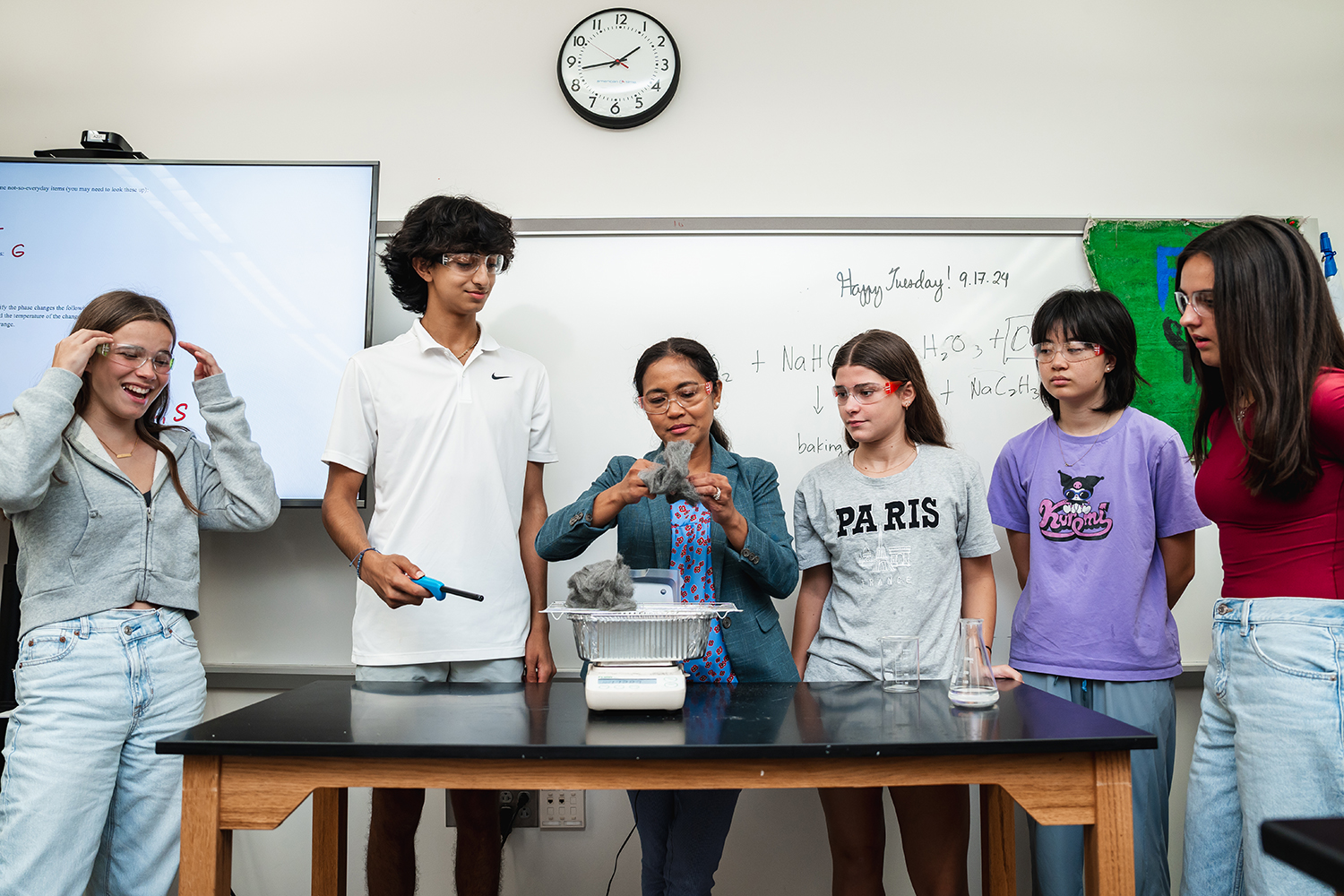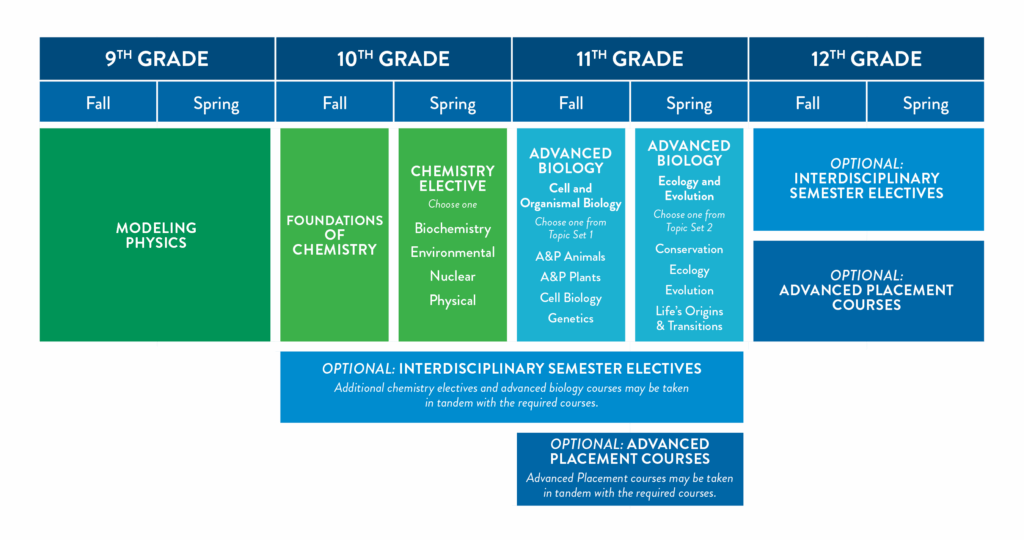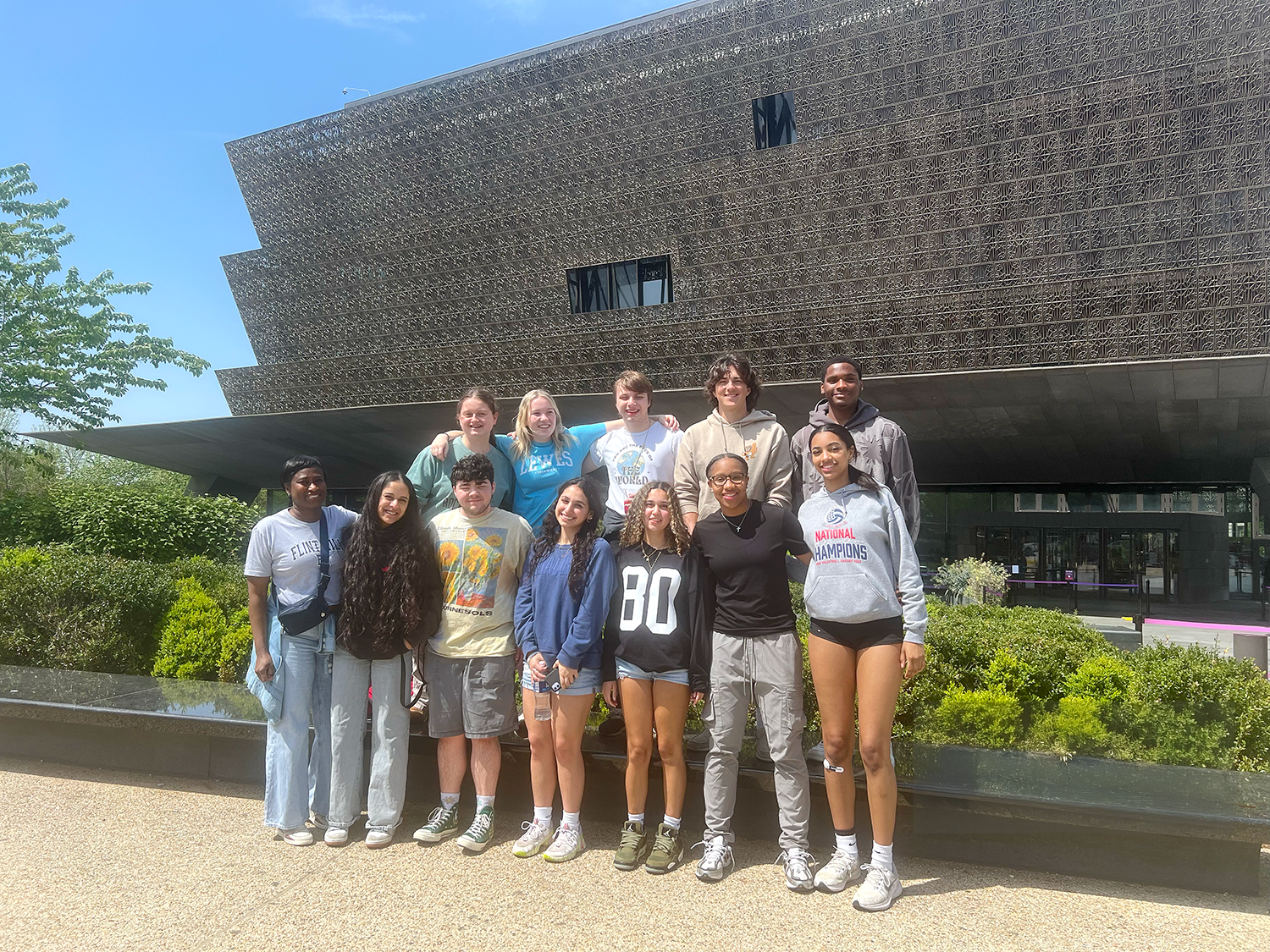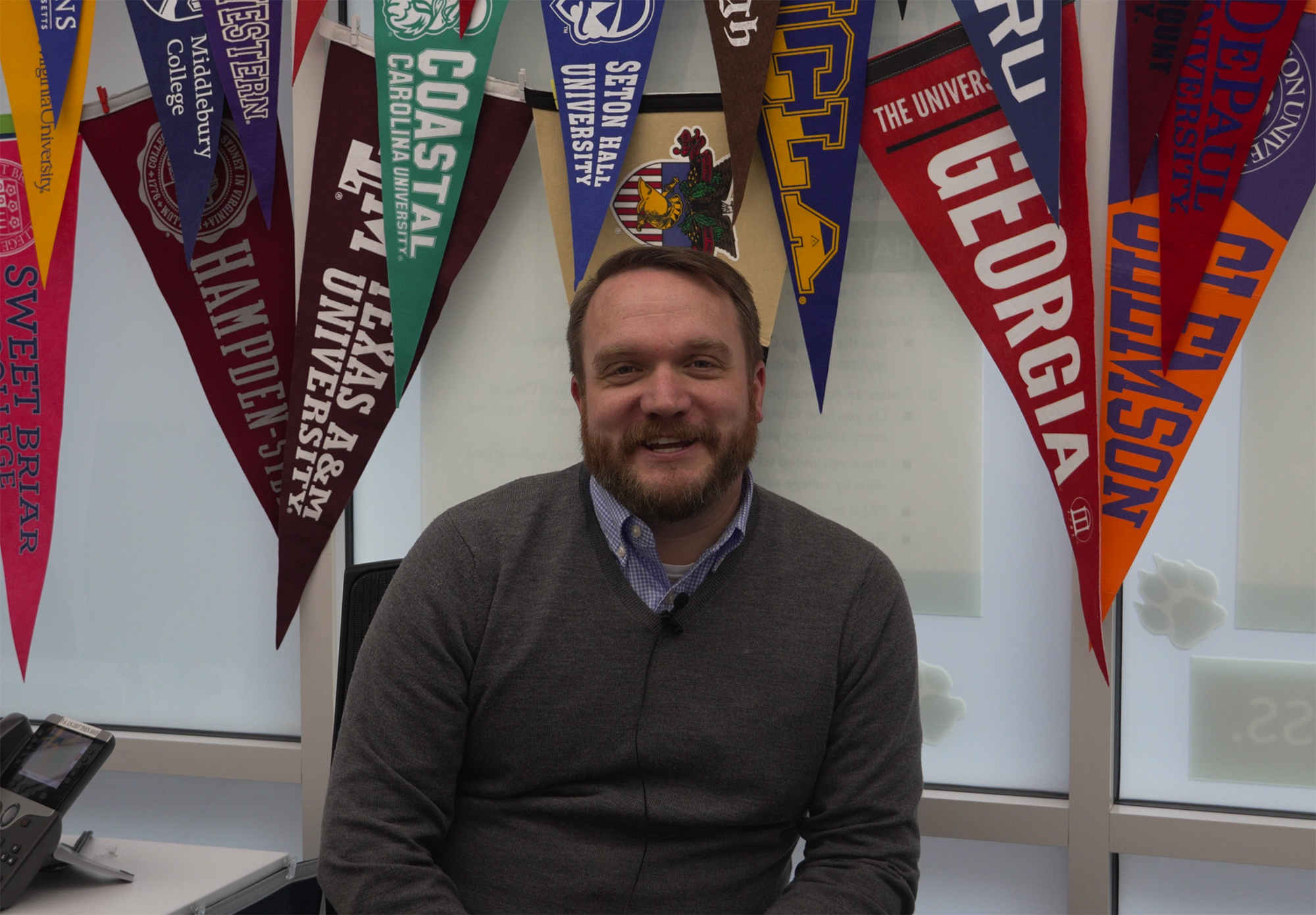HUSKY HIGHLIGHTS

September 8, 2025
By Dr. Zack Krug, MS and US Science Department Chair
Exploring Flint Hill’s New Science Curriculum: Student-Driven Chemistry and Biology Options
To cultivate young scientists with strong logic and reasoning, our new chemistry and biology courses make science relevant by combining advanced topics with student-driven interests.
Science is fundamentally about exploration, and the Flint Hill Science Department believes that student interest should guide exploration.
To do so, we changed to the following course progression model:
 Flint Hill Updated Science Curriculum: Larger Version
Flint Hill Updated Science Curriculum: Larger Version
WHY MAKE THE CHANGE?
Our intent is to lay the foundations for the topics students will encounter in AP and college classes.
While traditional honors classes can move more quickly and cover more material, the added content and labs are chosen by the instructor, leaving little time for students to follow their interests.
This means students end up with little ownership over the subjects they are learning. The subjects are less personal and their importance less obvious. But science is fundamentally about exploration, and student interest should guide exploration.
Instead of simply learning about population growth curves, our students use them to protect communities in Conservation Biology. Students apply the steps of cell division to cancer treatments and genetic disorders in Modern Genetics. They use their understanding of pH to reduce ocean acidification and protect marine communities in Environmental Chemistry.
HOW DOES IT WORK?
Basic skills (data collection, model fitting, experimental design) and content (Newton’s Laws in physics, energy, thermodynamics, atomic structure, etc.) are covered in Modeling Physics and Foundations of Chemistry. All students complete these courses together.
Students then diverge into courses that align with their interests. Advanced standards are introduced in these courses through the lenses of college-level topics.
Chemistry Requirements (10th Grade)
Semester 1: Foundations of Chemistry
In order to explore Chemistry, there are basic skills and content that every student must know. Those are mastered here, so students can succeed both in their second-semester Chemistry elective and in college.
Semester 2: Electives
The advanced standards and skills are investigated through the lenses of advanced electives, chosen by the students. These standards are compelling to the students, relevant to the specialized fields, and directly applicable to scientific and societal issues.
Advanced Biology Requirements (11th Grade)
The Next Generation Science Standards (NGSS) are divided into two categories and distributed among two sets of advanced courses. Students must take one course from each topic set to fulfill their Biology requirement, ensuring that all important NGSS will be covered before graduation, regardless of which courses are taken.
WILL STUDENTS LEARN ENOUGH BREADTH TO SUCCEED IN COLLEGE?
Our content and skills are still guided by the NGSS, and great focus went into ensuring that, no matter which Chemistry or Biology courses a student takes, they will be exposed to the necessary standards.
For example, a basic concept like DNA is absolutely essential to learn and understand for success at any level of Biology. Therefore, no matter which course from Topic Set 1 a student completes, a detailed unit on DNA is included. The only difference is the lens through which DNA is taught and the detail to which the student will be exposed. A student in Modern Genetics will learn far more about DNA (perhaps an honors or an AP level of content) than a student in Anatomy, who will focus primarily on its role in cell division and animal growth.
CONCLUSION: A FOCUS ON WHAT STUDENTS CARE ABOUT
In a traditional curriculum, a student simply moves from Chemistry to Biology and then possibly to AP courses. In our curriculum, it is now possible for a student to go from Environmental Chemistry to Conservation Biology.
A student may transition from Biochemistry to Genetics or Anatomy and Physiology. They might fall in love with Nuclear Chemistry and expand upon similar concepts in AP Physics 2.
The path is theirs, and there should be no limit to where it can lead.
Questions? Contact MS and US Science Department Chair Dr. Zack Krug at zkrug@flinthill.org.
Looking for more information about our Upper School curriculum? Read our Course Spotlights or view the Upper School Program Guide, which lists our 200+ course offerings.
LEARN MORE ABOUT FLINT HILL
Fill out the form to receive updates from our team.
RECOMMENDED FOR YOU
Want to know how Flint Hill Upper School students choose their courses each year? We provide an insider's look at the process.
This interdisciplinary exploration delves into the multifaceted experiences of African Americans, from ancient African kingdoms to the present day.
Flint Hill’s commitment to experiential learning was on full display in Dr. Christine Allred’s English II Honors course, where students didn't just read “The Great...
Upper School Freshman Class Dean Andrew Kane shares seven key things he wishes parents knew before their students start high school.






